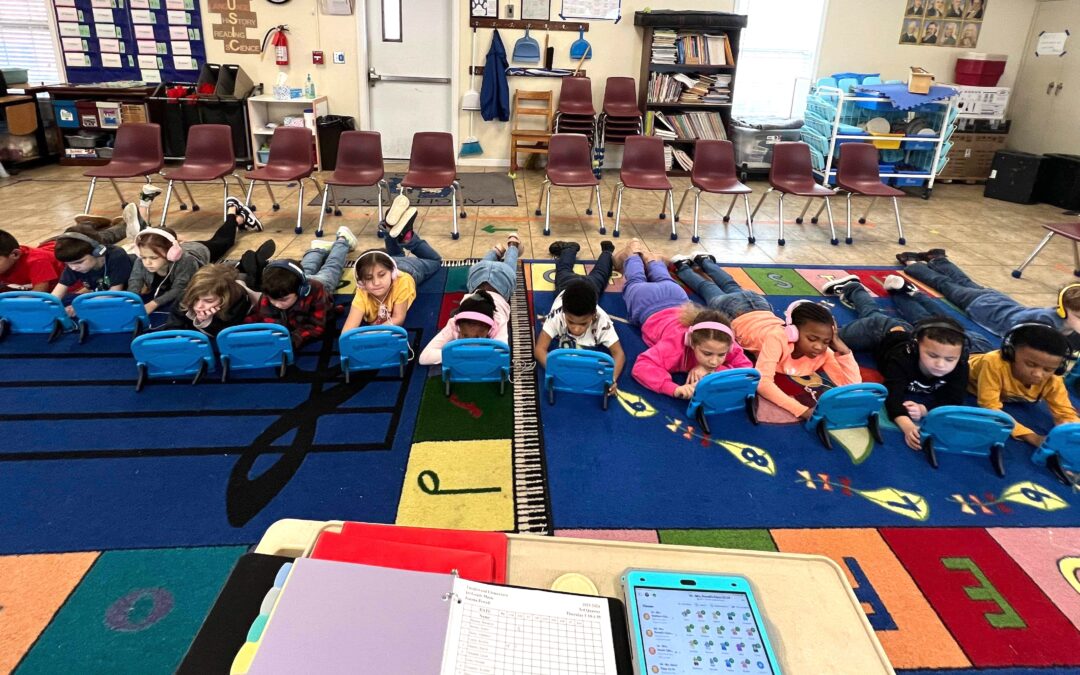In our district, like most others, the use of digital learning tools has catapulted since the pandemic. With students online more than ever, it’s essential that they know how to stay safe on the internet, protect their privacy and understand their digital footprint. This isn’t just something we believe in, it’s required by CIPA (Children’s Internet Protection Act), and schools like ours who receive federal E-rate funding are periodically audited to ensure compliance.
Many districts around us monitor and submit their CIPA compliance data manually, but with 21,000 students being served in Public Schools of Robeson County, we needed a more efficient way. Thankfully, the North Carolina Department of Public Instruction has partnered with Learning.com to offer their EasyTech curriculum for K-8 at no cost to districts and charter schools residing in Tier 1 and Tier 2 counties. It’s been a turnkey solution for us. Since CIPA compliance is required for all students up to age 18, we even added the program for our 9th through 12th graders.
Student Engagement
The students use EasyTech in their media centers, and we’ve set up Tech Quest for all students, which gives them access to a self-paced, gamified pathway through the content we prioritize for them.
Our K-12 student usage with Learning.com is high because it’s self-paced, easy to access, and they like the content. It doesn’t feel like an assignment to them, it’s just content they can enjoy as they learn about cyberbullying and digital footprints.
Teacher Support
For teachers, since Tech Quest is already set up with the content we want the students to work through, all they have to do is get the students started on the program on their chromebooks or iPads. Then as students work at their own pace, teachers can walk around and answer questions. Our K-12 media coordinators receive multiple professional development training for the program – and we encourage badges to those who go through the additional training.
At the district level, we can easily pull reports to see how classes are progressing through the program, and – critically – make sure everyone is on track to complete the required CIPA requirements by the end of course/grade testing.
Foundational Computer Skills
One of the things that’s great is that once students get logged onto Tech Quest, they finish the CIPA content first, but then move onto other digital skills, learning at their own pace. These skills help build foundations for the required computer science CTE course that North Carolina sixth graders now take.
- Keyboarding. In the past, North Carolina students learned keyboarding in middle school, but students need those skills much earlier. For that reason, we have keyboarding as the first content that students move into once they complete CIPA required lessons. When Learning.com launched Keyboard Garden, it really sparked an interest in our K-2 students, and we’re seeing them already moving away from pecking with two fingers, to using all 10 fingers to type.
- Computer Science. In our 6th grade computer science courses, students learn about algorithms, decoding, and the basics of different coding languages. The good news is that our students who make the most progress through their Tech Quest journey will be familiar with many of these foundational computer science concepts by the time they get to 6th grade. This sets them up to succeed when they get more hands-on opportunities in 6th grade, such as programming small robots. The content in the 6th grade computer science courses aim to push the envelope, preparing our 6th graders to take it to the next level in middle and high school.
- Coding. We’ve included coding lessons in our 9th through 12th grade Tech Quest curriculum, allowing students to continue to build on those skills, regardless of whether or not they are pursuing more computer science classes at the high school level.
Looking ahead
In the PSRC, we’ve benefited from the state’s support of digital literacy education for K-8 students, and the program is building steam. This year, North Carolina expanded to offer the program to Tier 2 schools, as well. Personally, I would encourage teachers and staff to try it out for the ease of ensuring students complete the instructional components required by CIPA, and then see how they can further leverage the program to support their other digital literacy and computer science goals throughout their curriculum and make connections in their own content.
Interested in the North Carolina K-8 Digital Literacy Program? Click below.

Lisa Thoman
Instructional Technology Facilitator
Lisa Thoman is the Instructional Technology Facilitator at Public Schools of Robeson County.

